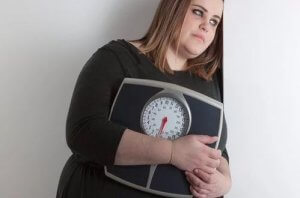Ketogenic Versus High-Protein Diet

Why is there so much confusion?
It’s easy! The most important aspect of both, ketogenic and high-protein diets, is to increase the amount of proteins that you consume. That’s why they’re both related to sports, weight loss, muscle building and muscle toning. However, both diets are handled differently, and you must consider the characteristics that set them apart.

High-protein diet
As its name indicates, a high-protein diet contains a larger percentage of protein than regular diets. 18 per cent of the calories that you consume, must come from protein products (meats, fish, eggs, soy derivatives etc.) In other words, you must consume 0.04 ounces of protein, per pound of body weight.
However, everything else stays the same. You can eat fruits, vegetables and fats without any restrictions. Logically, if you increase the amount of protein that you consume, you’d be doing this at the expense of eating less amounts of any other food types. But there’s no explicit restriction in a high-protein diet.
It’s not too different from a regular diet, except for the higher protein content, and it’s easy to follow if you have clear goals in mind. But you must consider your individual needs and situation. A high-protein diet would be advisable for patients that suffer with any of the following:
Excess weight or obesity
Many studies have proved that gently increasing the protein content in your diet will promote weight loss. Unless we’re extremely malnourished or suffering with severe physical issues, proteins are the last thing that our body uses to produce energy.

So, it’s possible to say that in this instance, you won’t make use of the calories that come from the proteins you eat. If you don’t use them to build muscle, your body will ultimately eliminate them through urine.
Of course, if your goal is to lose weight, a high-protein diet will make you consume less fats and more proteins, although it’s not a strict rule.
Athletes
As we’ve mentioned, if you exercise to make your muscles grow, by means of enduring the stress levels that you put them under, the proteins you consume will make you stronger. Because after all, sports can be a stressful activity.
Injuries and burns
When your body is injured, the most important treatment is to help it heal. All of our tissues are made of a higher or lower amount of proteins. This amount is variable but completely necessary. Because of this, if you give your body extra proteins in addition to fulfilling your basic needs, you’re helping it to repair the damaged tissues.
Ketogenic diet
If instead, you choose to follow a ketogenic diet, it becomes a little more complicated. In order for your body to go into ketosis, you need to increase the amount of proteins in your diet, by eliminating carbohydrates. But, if you stop eating bread, pastas, rice, cereals, flours and you limit your intake of fruits and vegetables, what will you eat?
When your body is running low on glucose, which comes from high carbohydrate foods, it starts to produce ketone bodies. These molecules have the same function that glucose does, but they are not as effective.
Symptoms and signs
We usually feel tired -if not exhausted- when we’ve been following this diet for a few days and our glucose reserves are empty. Headaches, migraines, crankiness…these are typical sugar withdrawal symptoms.
A stronger body odor, sweating and frequent urination are notable signs of reaching the midpoint in this diet. You shouldn’t follow this type of diet for too long as it may restrict the consumption of foods that are rich in vitamins and minerals.
Care about what you do
If you’re thinking about starting a diet of this sort, make sure you follow it the right way. Become educated by people who are experts in this matter. As we’ve said before, fruits and vegetables are only restricted, you should still eat them in small amounts. After all, you need glucose to perform all of the functions that only glucose can.
But if you go overboard with the amount of fruits and vegetables that you eat, you may not produce enough ketone bodies, and therefore you won’t see the results you expect. And you won’t be able to blame this on the diet, as it will be due to a poor planning.
That is what happens when you eat too much glucose. However, if you don’t consume enough glucose, the consequences may vary from a brief fainting to even motility alterations. Not to mention that if your body is in ketosis for too long, you will most likely develop a vitamin and mineral deficiency.
Why is there so much confusion?
It’s easy! The most important aspect of both, ketogenic and high-protein diets, is to increase the amount of proteins that you consume. That’s why they’re both related to sports, weight loss, muscle building and muscle toning. However, both diets are handled differently, and you must consider the characteristics that set them apart.

High-protein diet
As its name indicates, a high-protein diet contains a larger percentage of protein than regular diets. 18 per cent of the calories that you consume, must come from protein products (meats, fish, eggs, soy derivatives etc.) In other words, you must consume 0.04 ounces of protein, per pound of body weight.
However, everything else stays the same. You can eat fruits, vegetables and fats without any restrictions. Logically, if you increase the amount of protein that you consume, you’d be doing this at the expense of eating less amounts of any other food types. But there’s no explicit restriction in a high-protein diet.
It’s not too different from a regular diet, except for the higher protein content, and it’s easy to follow if you have clear goals in mind. But you must consider your individual needs and situation. A high-protein diet would be advisable for patients that suffer with any of the following:
Excess weight or obesity
Many studies have proved that gently increasing the protein content in your diet will promote weight loss. Unless we’re extremely malnourished or suffering with severe physical issues, proteins are the last thing that our body uses to produce energy.

So, it’s possible to say that in this instance, you won’t make use of the calories that come from the proteins you eat. If you don’t use them to build muscle, your body will ultimately eliminate them through urine.
Of course, if your goal is to lose weight, a high-protein diet will make you consume less fats and more proteins, although it’s not a strict rule.
Athletes
As we’ve mentioned, if you exercise to make your muscles grow, by means of enduring the stress levels that you put them under, the proteins you consume will make you stronger. Because after all, sports can be a stressful activity.
Injuries and burns
When your body is injured, the most important treatment is to help it heal. All of our tissues are made of a higher or lower amount of proteins. This amount is variable but completely necessary. Because of this, if you give your body extra proteins in addition to fulfilling your basic needs, you’re helping it to repair the damaged tissues.
Ketogenic diet
If instead, you choose to follow a ketogenic diet, it becomes a little more complicated. In order for your body to go into ketosis, you need to increase the amount of proteins in your diet, by eliminating carbohydrates. But, if you stop eating bread, pastas, rice, cereals, flours and you limit your intake of fruits and vegetables, what will you eat?
When your body is running low on glucose, which comes from high carbohydrate foods, it starts to produce ketone bodies. These molecules have the same function that glucose does, but they are not as effective.
Symptoms and signs
We usually feel tired -if not exhausted- when we’ve been following this diet for a few days and our glucose reserves are empty. Headaches, migraines, crankiness…these are typical sugar withdrawal symptoms.
A stronger body odor, sweating and frequent urination are notable signs of reaching the midpoint in this diet. You shouldn’t follow this type of diet for too long as it may restrict the consumption of foods that are rich in vitamins and minerals.
Care about what you do
If you’re thinking about starting a diet of this sort, make sure you follow it the right way. Become educated by people who are experts in this matter. As we’ve said before, fruits and vegetables are only restricted, you should still eat them in small amounts. After all, you need glucose to perform all of the functions that only glucose can.
But if you go overboard with the amount of fruits and vegetables that you eat, you may not produce enough ketone bodies, and therefore you won’t see the results you expect. And you won’t be able to blame this on the diet, as it will be due to a poor planning.
That is what happens when you eat too much glucose. However, if you don’t consume enough glucose, the consequences may vary from a brief fainting to even motility alterations. Not to mention that if your body is in ketosis for too long, you will most likely develop a vitamin and mineral deficiency.
All cited sources were thoroughly reviewed by our team to ensure their quality, reliability, currency, and validity. The bibliography of this article was considered reliable and of academic or scientific accuracy.
- Paoli, A. (2014). Ketogenic diet for obesity: Friend or foe? International Journal of Environmental Research and Public Health. https://doi.org/10.3390/ijerph110202092
- Pesta, D. H., & Samuel, V. T. (2014). A high-protein diet for reducing body fat: Mechanisms and possible caveats. Nutrition and Metabolism. https://doi.org/10.1186/1743-7075-11-53
- Paoli, A., Bosco, G., Camporesi, E. M., & Mangar, D. (2015). Ketosis, ketogenic diet and food intake control: A complex relationship. Frontiers in Psychology. https://doi.org/10.3389/fpsyg.2015.00027
This text is provided for informational purposes only and does not replace consultation with a professional. If in doubt, consult your specialist.








